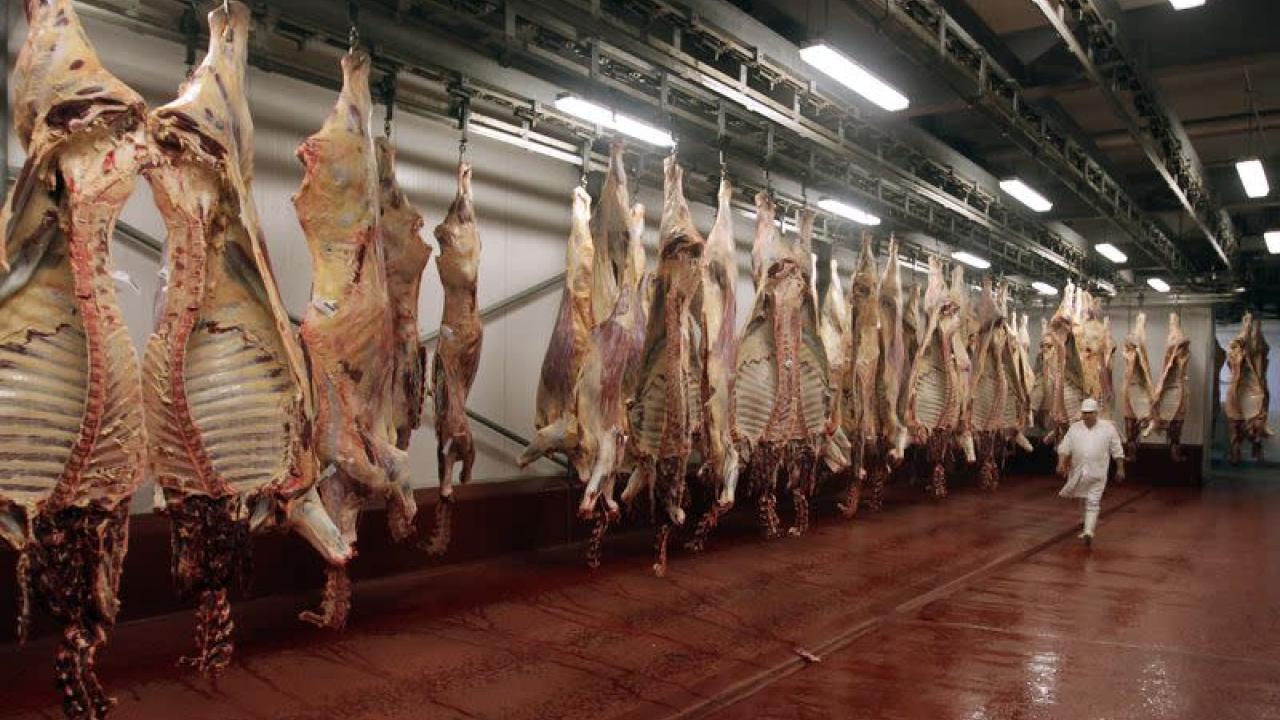
The outgoing government of Uruguay has formed a task force to demonstrate that the country is not responsible for the "serious losses" suffered by Chinese meat producers' associations.
The Uruguayan government is confident that the investigation launched by China into meat imports over the past five years will not have negative effects on Uruguayan exports to the Asian giant.
The country's Ministry of Commerce announced on Friday, December 27, that it had begun an investigation after receiving complaints from local associations that attributed their "serious losses" to the increase in meat imports.
Although it has been declining (due to greater market diversification that Uruguay has achieved), China has continued to be –for years– the main destination for beef.
In 2024, sales represented US$ 622 million (31% of the total), according to data from Uruguay XXI.
Immediately after the announcement, the Minister of Livestock, Fernando Mattos, met with the Chinese ambassador Huang Yazhong to learn about the situation firsthand.
At that time, Mattos told him that Uruguay will form a team between the Ministries of Foreign Affairs and Livestock and INAC to advance in providing “very technical and very professional information” to demonstrate that the country is not “responsible” for this situation that is harming the Chinese domestic industry, sources from the MGAP told El Observador .
The informant added that the minister reiterated to the ambassador that Uruguay has a “strong commitment” to China’s policy of expanding its local livestock, something that has been demonstrated by the export of cattle on the hoof, the search for exports of bovine genetics and the gift of two bulls that Lacalle Pou gave to Xi Jinping in November 2023 during the official mission to Beijing.
The bulls have not yet been sent for logistical reasons, but the Hereford specimen belongs to the El Baqueano ranch, and the Angus to the Roberto J. Zerbino Ganadera ranch.
THE RESEARCH
China launched the investigation in response to a request from the Animal Agriculture Association and nine industry associations in major beef-producing regions in the country.
The groups claimed that the volume of meat imports has increased significantly over the past five years with a growth of 106% in the first half of 2024 compared to the same period in 2019.
They also claimed that the excess supply was reducing prices and that the sharp increase in import volumes had “seriously damaged” the domestic industry.
The investigation will last eight months, although it may be extended in special circumstances.
The Asian giant is the world's largest importer and consumer of meat. Total beef imports reached US$ 14.2 billion in 2023. Brazil accounted for 42% of the total trade value, followed by Argentina with 15%, Australia with 12% and Uruguay with 5%.
THE REACTIONS
Just as Mattos met with the Chinese ambassador, Brazil and Argentina also forged diplomatic lines and expressed confidence in the investigation.
The Secretariat of Agriculture, Livestock and Fisheries, together with the Ministry of Economy of the Argentine government, expressed that it is “following with maximum attention and analyzing the details” of the investigation.
In a statement, they said they are “in communication with representatives of the private sector” to coordinate actions that can mitigate any negative impact on Argentine exports that “depend largely on the Chinese market.”
The Brazilian government, for its part, said it had taken note of the investigation and assured that in the coming months it would be proven that “Brazilian meat exported to China does not in any way harm the Chinese industry, but is, on the contrary, an important factor in complementing local Chinese production.”
The Lula da Silva administration added that China was the main destination for Brazilian beef exports and reaffirmed its commitment to “defend the interests of Brazilian agribusiness, respecting the sovereign decisions of our main trading partner, always seeking constructive dialogue in search of mutually beneficial solutions.”









